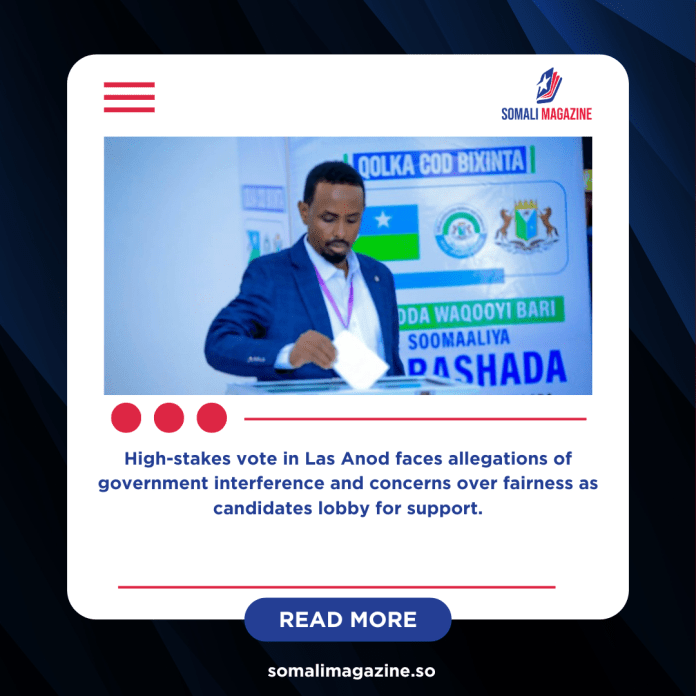Facebook Twitter (X) Instagram Somali Magazine - People's Magazine
Lawmakers in Somalia’s newly formed Northeastern state are preparing to elect a president and vice president on Saturday in Las Anod. This vote is being seen as a major step in shaping the region’s political future and building its first formal administration.
The election has drawn a lot of attention, not only because it will decide who leads the state but also because of the controversies surrounding it. Ten candidates are competing for the two top positions — five for president and five for vice president. Since Friday night, these candidates have been working tirelessly to convince lawmakers to support them. Reports indicate that large sums of money are being spent in the lobbying process, with some estimates suggesting that hundreds of thousands of dollars have already changed hands.
Among the presidential contenders, Abdikadir Ahmed Ali Firdhiye, the former interim leader of SSC-Khatumo, is widely viewed as the frontrunner. He is considered a strong candidate because of his leadership experience during the region’s transitional period. However, sources suggest that other candidates may form alliances to prevent him from winning in the final round. This possibility reflects the high stakes of the election and the deep divisions among the political class.
The five candidates running for the presidency are Abdikadir Ahmed Ali Firdhiye, Rashid Farah Mohamud, Abdirisaq Khaliif Ahmed, Jamaal Mohamed Hassan, and Mohamud Yusuf Hassan. The vice-presidential race features Omar Dahir Hassan, Abdirashid Yusuf Jibriil, Abdirisaq Mohamed Jama, Abdisatar Sheikh Osman Omar, and Mohamed Abdi Bulaale.
Tensions have risen due to accusations that the Federal Government of Somalia is interfering in the election. Opposition candidates allege that government officials are openly supporting Firdhiye and using money to influence lawmakers’ decisions. According to these candidates, this interference undermines both the fairness and transparency of the election. One candidate told local media that the government’s involvement “could derail the process of forming a viable administration” in the new state.
These claims have fueled debates about whether the federal government is playing a neutral role or attempting to shape the outcome for its own interests. As of now, Mogadishu has not responded to the accusations, leaving room for further speculation. For many observers, this silence raises concerns about whether the federal government will be able to manage its relationship with the new state in a balanced and respectful way.
The election in Las Anod is being seen as more than just a competition between individual candidates. It represents a turning point for a region that has been through years of conflict, instability, and political uncertainty. Establishing a legitimate leadership structure is critical for building trust among communities, strengthening governance, and ensuring that the new state has a functioning administration capable of addressing local needs.
If carried out fairly, the vote could help stabilize the region and mark the beginning of a new political chapter. However, if the allegations of bribery and interference are proven true, the process risks losing credibility before it even begins. For the people of Northeastern Somalia, this election is not just about choosing leaders but also about proving that they can form an administration built on fairness and accountability.
As lawmakers prepare to cast their votes, the people of Las Anod and beyond are waiting anxiously. The results will determine whether this young state takes a step toward stability and recognition or becomes mired in the same political struggles that have weakened many other parts of Somalia.

